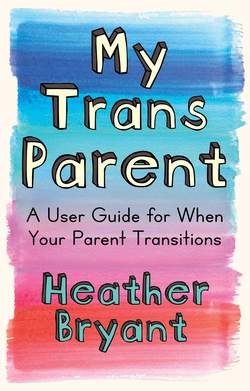Читать книгу My Trans Parent - Heather Bryant - Страница 40
На сайте Литреса книга снята с продажи.
SHIFTING IDENTITIES IN THE LGBTQ+ COMMUNITY
ОглавлениеI once went to a gathering for COLAGE, a national organization for people with one or more LGBTQ+ parent, where I saw a family that I perceived as straight. I wondered what they were doing there. Later, I learned that one of the parents was trans. They looked straight on the outside, which changed how the world and the queer community saw them.
For me, the opposite happened. My parents, who the world once saw as straight, now looked like lesbians when they went out together. As a teen, this was mortifying to me. Still, my mom didn’t identify as a lesbian, and they weren’t a couple in the way that they used to be, so it was confusing.
When my dad was gay, there was no question about that identity. We were folded into a bigger community through partners. When my dad was trans, it was like being alone and navigating through rough terrain. There wasn’t the same strong community of support. We found ourselves on the outside, even in the LGBTQ+ community. For a long time, it felt like the “T” was silent.
The trans community was more dispersed, with some in hiding, trying to “pass,” and some in families. Dana’s therapist connected her with other people in transition, but it didn’t feel like a community. It was one person here or there, coming out in secret. It wasn’t a group that embraced us and said, “Here, you belong with us.” In a way, it felt like we didn’t belong anywhere; not to a bigger group who shared the same identity.
I used to see our isolation as simply part of the fact that there were fewer trans families at the time; but, in fact, the medical model was designed for isolation. Julia Serano talks about this in her study of the problematic science at the time. The gatekeepers required a “real-life test” of living full time in the chosen gender. Each step of the way, gender ambiguity was discouraged and silence encouraged. The hoops and steps led to isolation and invisibility, serving society more than families.
Most people with trans parents who I spoke to shared a sense of isolation, of not feeling connected to a wider community. That is one of the biggest obstacles they faced. It impacted coming out for them and their families. The wider the community, the more support for “coming out” and all things. Now, there’s a wider community, but there’s still a way to go in terms of supporting families in transition. The “T” is no longer silent in LGBTQ+, but the community for trans families could still be strengthened further.
